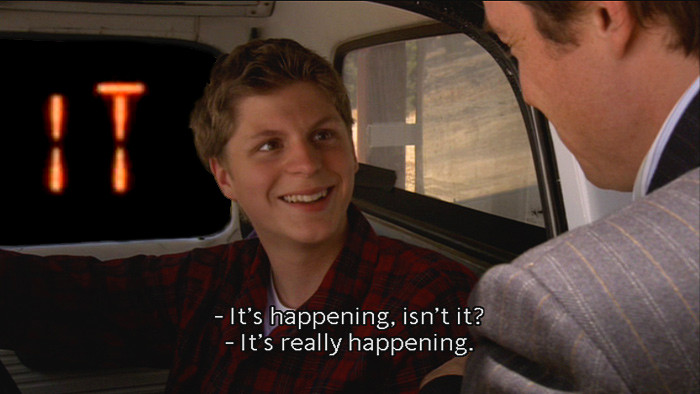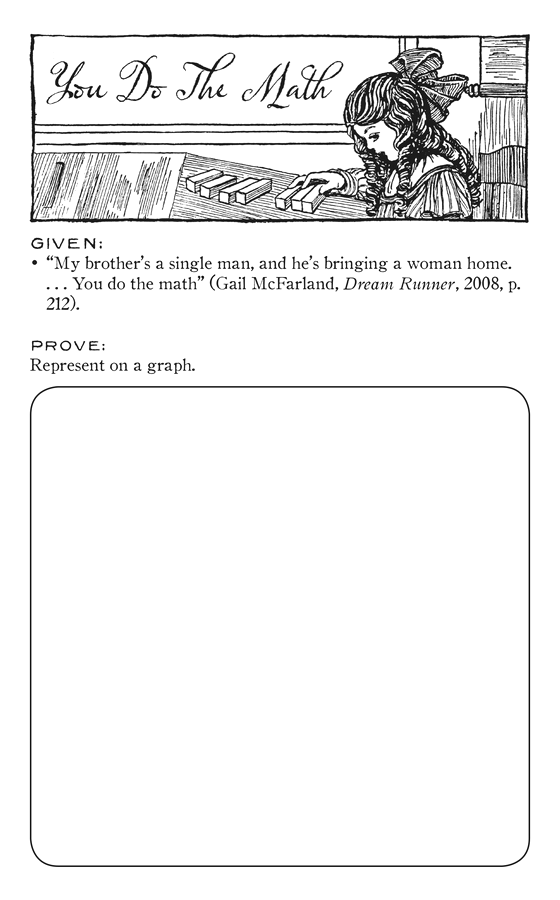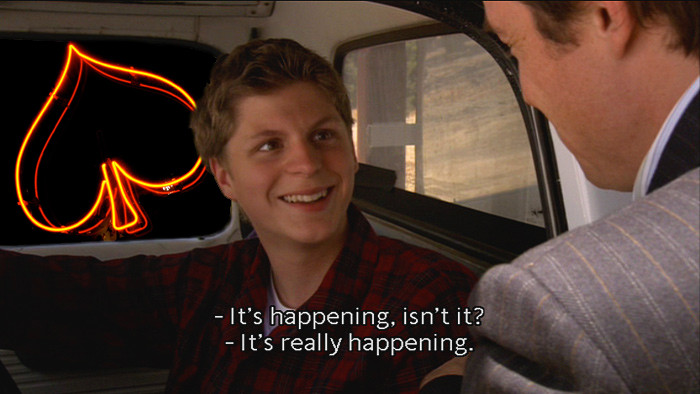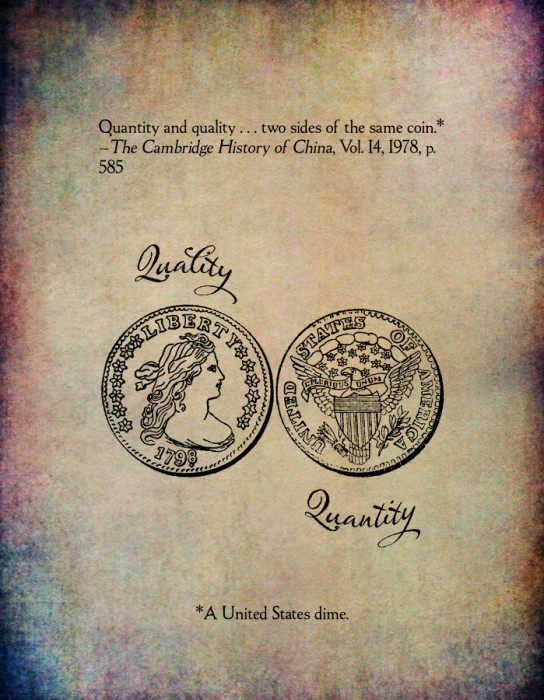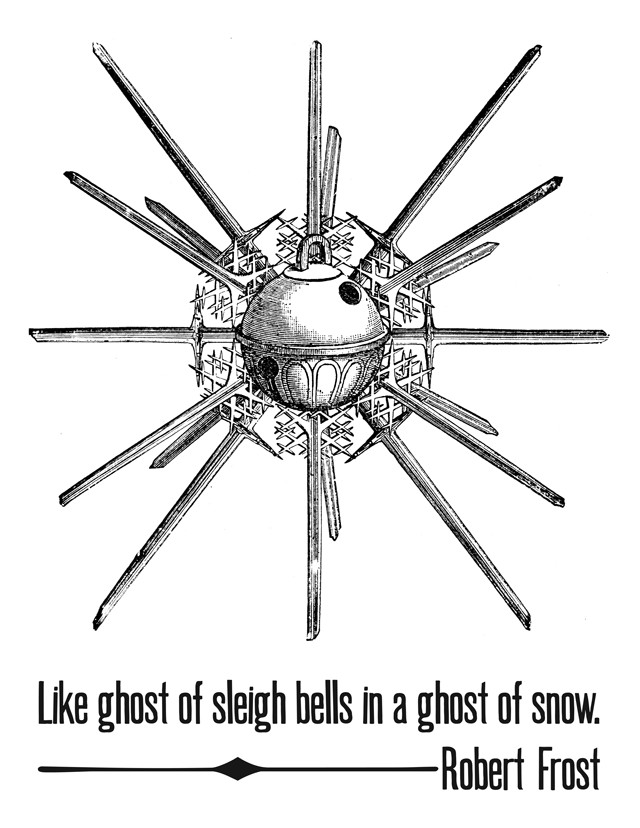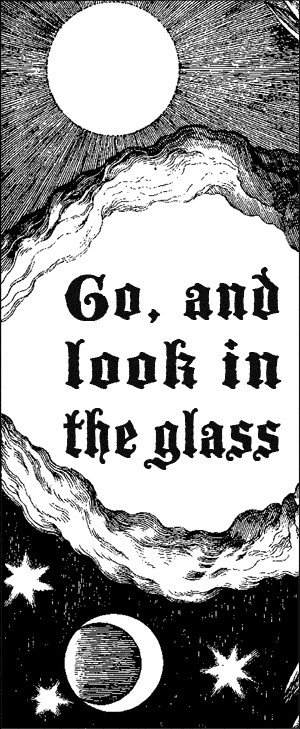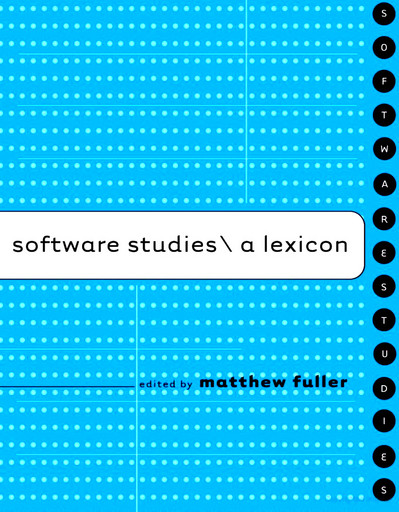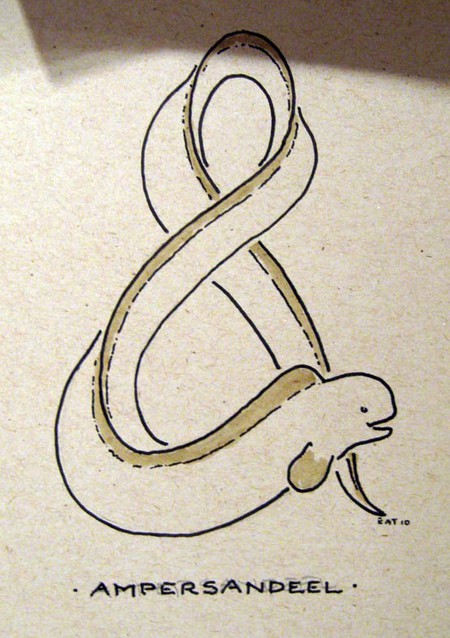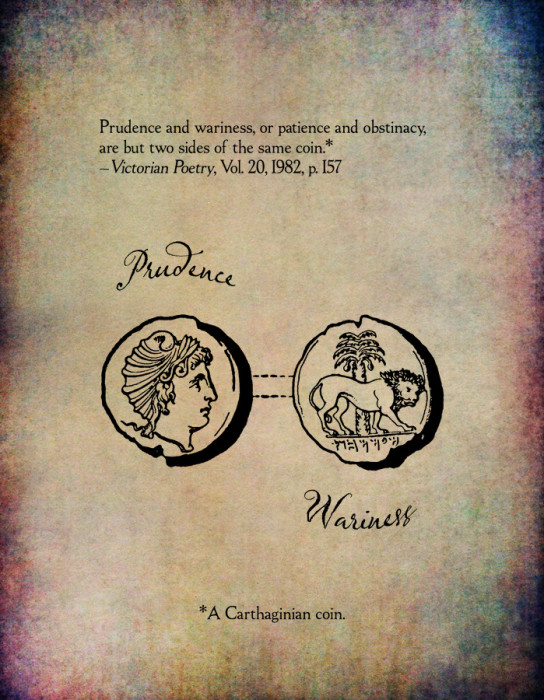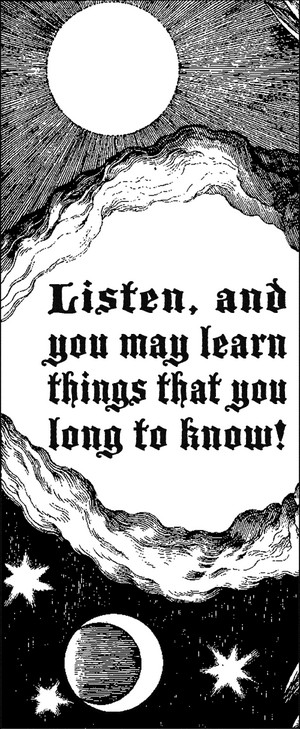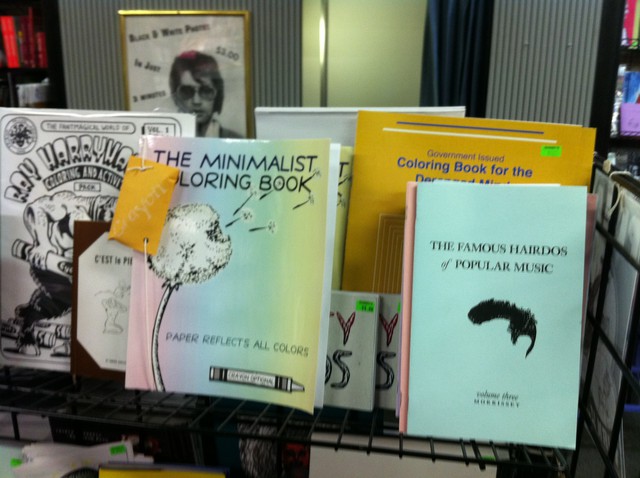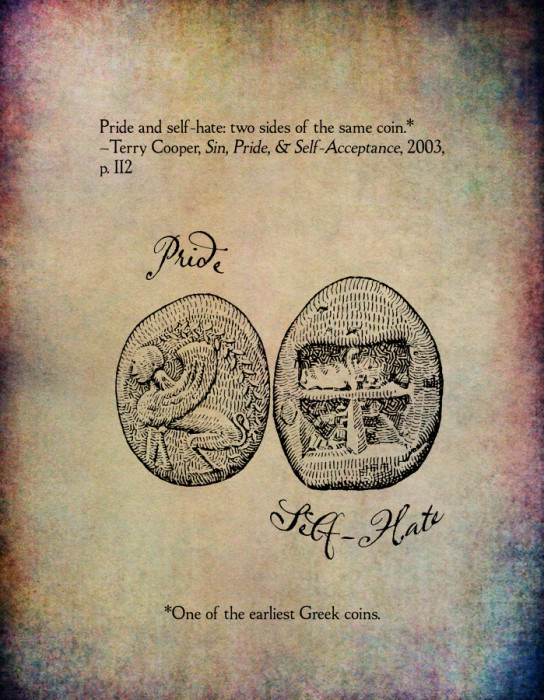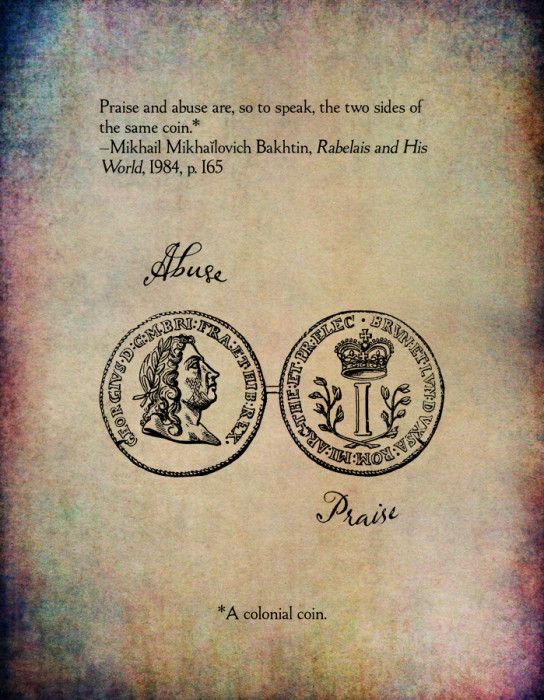|
|
 |
 |
Q: Why do I have to ask the questions? A: Do you think that is the question to ask? — Geof Huth, personal correspondence |

 |
 “Your ship will come upon islands of injustices and inequities, manifested by the subconscious reactions that steered you there.” —Robin Clark “Your ship will come upon islands of injustices and inequities, manifested by the subconscious reactions that steered you there.” —Robin Clark
|

 |
|
|
 |
 |
| I Found a Penny Today, So Here's a Thought |
(permalink) |
 |
 |
 |
"Literature is a false representation of life that nevertheless helps us to understand life better, to orient ourselves in the labyrinth where we are born, pass by, and die. It compensates for the reverses and frustrations real life inflicts on us, and because of it we can decipher, at least partially, the hieroglyphic that existence tends to be for the great majority of human beings, principally those of us who generate more doubts than certainties and confess our perplexity before subjects like transcendence, individual and collective destiny, the soul, the sense or senselessness of history, the to and fro of rational knowledge." —Mario Vargas Llosa's Nobel lecture, "In Praise of Reading and Fiction," Dec. 7, 2010
|

 |
|

 |
|
|
 |
 |
We're delighted that the Vangobot robot has created a painting in our honor. The piece is entitled " 4 Prof. Oddfellow." It's like looking in a mirror!
|

 |
| The Ghost in the [Scanning] Machine |
(permalink) |
 |
 |
 |
~ Classic Sightings ~ 
Portrait from Memoir of the Rev. John James Weitbrecht.
“I couldn’t look into his face; I knew instinctively that one doesn’t look in the face of a Spirit.” —W. Jackson Rushing
|


 |
 Is it true, as Momus
suggests, that there are "few tales which would not be improved by the
addition of the phrase 'suddenly, a shot rang out'"? Decide for
yourself as we alter the opening lines of . . . BACK WHEN WE WERE GROWNUPS by Anne Tyler Once upon a time, there was a woman who discovered she had turned into the wrong person. Suddenly, a shot rang out.
|


 |
| I Found a Penny Today, So Here's a Thought |
(permalink) |
 |
 |
 |
"'Science is systematized and formulated knowledge.' Then anybody who has systematized and formulated knowledge enough to appear, on time, at the breakfast table, is, to that degree, a scientist. There are scientific dogs. Most of them have a great deal of systematized and formulated knowledge. Cats and rabbits and all those irritating South American rodents that were discovered by cross-word puzzle-makers are scientists. A magnet scientifically picks out and classifies iron filings from a mass of various materials. Science does not exist, as a distinguishable entity." —Charles Fort, Wild Talents |











 |
 Is it true, as Momus
suggests, that there are "few tales which would not be improved by the
addition of the phrase 'suddenly, a shot rang out'"? Decide for
yourself as we alter the opening lines of . . . THE END OF THE AFFAIR by Graham Greene A story has no beginning or end; arbitrarily one chooses that moment of experience from which to look back or from which to look ahead. Suddenly, a shot rang out.
|


 |
|
|
 |
 |
From our Magic Words outpost: We're honored to have our insights into "hocus pocus" referenced in Software Studies: A Lexicon, edited by Matthew Fuller. The chapter in question is Marco Deseriis' "Text Virus." |

 |
INSTRUCTIONS: Click on the puzzle image below to reveal one possible solution.
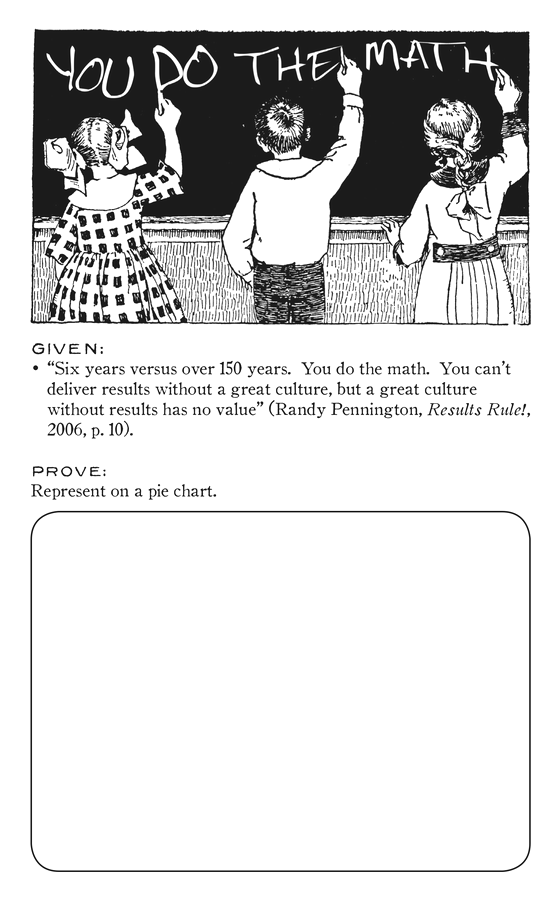
|


 |
| The Ghost in the [Scanning] Machine |
(permalink) |
 |
 |
 |
~ Classic Sightings ~

Frontispiece from William Douglas O’Connor’s The Ghost.
The implication seems to be this: spirit is a shadow in the material realm, and material is a shadow in the spirit realm. To understand what's going on here, see The Ghost in the [Scanning] Machine.
|

 |
|
|
 |
 |
While decorative type ornaments are predominantly botanical in nature, punctuation marks betray bestial origins. The ampersand, for example, descends from a snakelike fish. See this most unusual book about ampersands through history: Ampersand.
|

 |
 “Yes, your boat awaits you.” —Edna Lyall “Yes, your boat awaits you.” —Edna Lyall
|

 |
|
|
 |
 |
"She stared at the sun, narrowing her eyes until it was just a speck. The speck grew larger and larger, white obliterating dark. Past destroying present." — Sarah McCarty, Tracker's Sin (2010) |



 |
| The Ghost in the [Scanning] Machine |
(permalink) |
 |
 |
 |
~ Classic Sightings ~ 
Portrait from Memoir of the Rev. Thomas Allin.
“Upon our darkened eyes / A light more pure than noontide rays shall shine.” —Catherine Grant Furley, “Incompleteness”
|


 |
 Is it true, as Momus
suggests, that there are "few tales which would not be improved by the
addition of the phrase 'suddenly, a shot rang out'"? Decide for
yourself as we alter the opening lines of . . . CHROMOS by Felipe AlfauThe moment one learns English, complications set in. Suddenly, a shot rings out. --- Jeff writes: This could be the two-sentence life story of so many tortured writers. Of course, simply reversing the order of the sentences avoids those pesky English complications altogether, but then who would be left to torture? It's a bit of a paradox.
|



 |
INSTRUCTIONS: Click on the puzzle image below to reveal one possible solution.
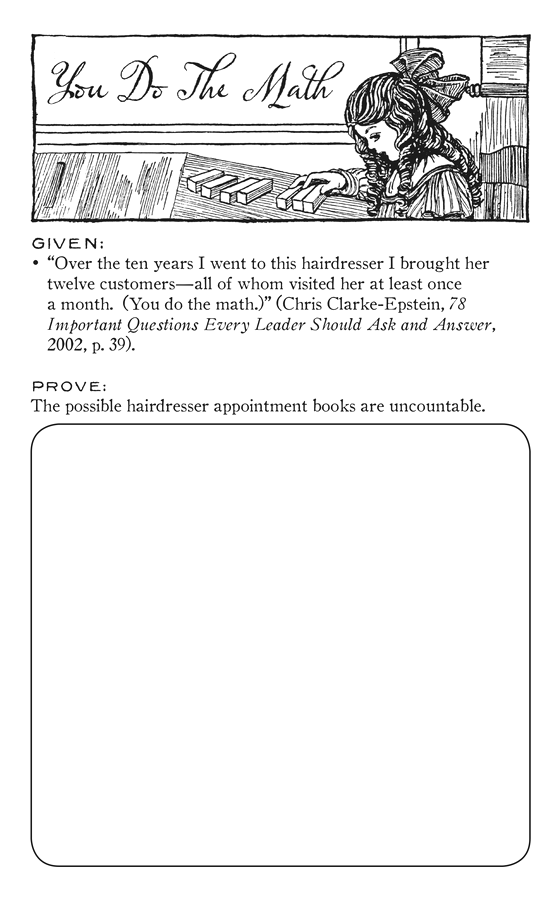
|

 |
|
|
 |
 |
Our favorite Finnish electronic band, Déclassé, offers a "you do the math" moment: One phone call
thirteen numbers
still a million miles away.
We love the sentiment that working through a lot of digits to make an international call somehow ought to subtract from the distance. The paradox arises from considering space and "long distance minutes" as separate entities. Ultimately, as with Zeno's puzzles, solving the mathematical issues does not solve every issue the paradox raises. |

 |
| The Ghost in the [Scanning] Machine |
(permalink) |
 |
 |
 |
~ Classic Sightings ~

From William Douglas O’Connor’s The Ghost.
The left image depicts the ghost as it appears in the material realm, while the right image depicts the ghost as it appears in the immaterial realm. And so we learn that ghosts are even more nebulous in the netherworld. To understand this phenomenon, see The Ghost in the [Scanning] Machine.
|

 |
|
|
 |
 |
[We have rescued this article from limbo. It was set to appear in a Norwegian art and literary magazine back in 2009. The magazine, like so many unicorns before it, seemed to dematerialize as quickly as it appeared. Fans of our Field Guide to Identifying Unicorns by Sound will hear some familiar echoes of our research.]
Hoofbeats in a Snowball:
Field Notes from a Cryptozoologist
by Craig Conley
Freshly fallen snow can actually store the sounds of unsubstantiated wildlife as well as project them with clarity. A carefully gathered snowball is like a library of sounds stored on crystalline shelves. When held to the ear like a seashell, it may whisper the mythic secrets it has absorbed. Ergo, composer and music theorist John Rahn describes "a little snowball of sounds” (Perspectives on Musical Aesthetics, 1995). Snow expert Nancy Armstrong explains that "When snow is newly fallen, sound waves are absorbed into its soft surface. Later, when the surface has hardened, sounds may travel further and sound clearer, because the snow reflects sound waves, sending them more quickly through the air” (Snowman in a Box, 2002). Barbara Blair concurs: "snow is a wonderful substance to enhance awareness” (Communing with the Infinite, 2006).
Here’s a secret: cryptozoologists can "see” more disputed wildlife, per capita, with their eyelids shut than the average person can see with eyes wide open. That’s because they have an intimate friendship with the sounds unsubstantiated creatures make. As you concentrate with eyes closed and mind focused, you may detect the telltale song of the unicorn, for example, announcing the presence of the venerable creature and beckoning you to begin your quest. When you open your eyes, the unicorn may not be immediately visible, but you’ll know where to start looking.
Hearing disputed wildlife requires time, patience, and "deep listening” skill on the part of the human, and vocal projection on the part of the animal. Because we live in a highly visual world, we rarely exercise the full range of our hearing. Yet our ears can detect things that our eyes automatically neglect. By listening as opposed to looking, we can avoid overlooking. Practice can be richly rewarding, whether one is listening for unicorns in particular or neglected delights in general.
Wintry days are excellent for listening practice. Wisps of glittering snowflakes gently falling to earth—that faint sound is subtle but by no means imperceptible. The key is to distinguish it from total silence. Barbara Wright explains: "the lovely sound of snowfall” is "no sound at all, really, but neither [is] it silence” (Plain Language, 2003). Sandra Meek agrees, but adds an intriguing qualifier: "No sound for snow, no definition of ice. The unsaid among shuttered wings” (Nomadic Foundations, 2002). Without question, unsaid utterances can resound in the silence between two beings. Perhaps they are unspeakable. Perhaps they are ineffable. In any case, they spiral, grow, and ring in our ears. As Mary Summer Rain has noted, deep silence intensifies the sound of falling snow (Soul Sounds, 1992).
The delicately complex sound of snowflakes can connote anything from serenity to ominousness, depending upon the unsubstantiated wildlife’s intentions. Donna Andrews records "the eerie, muffled sound” of snow (You’ve Got Murder, 2002), while Judith Hendricks offers a more endearing description of "the soft, purring sound of snowfall, like a big cat.” She adds, in parentheses, "Yes, there is a sound, but you can only hear it in absolute silence” (The Baker’s Apprentice, 2005). Indeed, according to professional sound designers Deena Kaye and James LeBrecht (Sound and Music for Theatre, 1999), the sound of snow has a broad range:
- calm
- menacing
- comforting
- threatening
- inviting
- foreboding
- soothing
It should come as no surprise that unicorns make a sound like falling snow, for snowflake crystals and unicorns share many characteristics:
- no two alike
- sparkly white in color (having absorbed all of the surrounding sunlight or moonlight)
- difficult to predict
- beautiful
- symbols of purity
- natural materializations
- symbols of innocence
- can be dangerous at times
- symbols of serenity
- excellent insulators
- ephemeral
- blend into the landscape
The suggestive sound of snow can also be:
- divinely musical
- like a whimpering specter
- like sieved flour
- astonishing
- dreamy
- enlightening
- peaceful
- glassy
- like spilling sugar
- persistent
- hollow
- pattering
- slithering
- tickling
- drumlike
- hissing
- swooshing
- wailing
- forlorn
- scraping
- feathery
- gently caressing
- scratching
- faintly ticking
- isolating
- bright
- monotonous
- rustling
- fierce
- softly sputtering
- eloquent
- enveloping
- whispering
- miraculous
- cleansing
If not distorted by foliage, a gust of wind might carry fragrances from afar, winged seeds, the moans of trees, echoes of laughter and distant whistles, the howls of storms, sudden chills, the invocations printed on prayer flags, and the sounds of a gamboling unicorn. It is common knowledge that unicorn sound waves can be better detected downwind of the beast than upwind. But why is that, considering the fact that wind velocities are a mere fraction of the speed of sound (750 miles per hour)? The phenomenon may derive from wind shears deflecting sound waves either downward (more toward the listener) or upward (away from earshot). Naturally, if a unicorn sound is carried by the wind, the source of that sound will be upwind (opposite the direction of the gust). In the case of whirlwinds, anything goes.
Beautiful to the human ear, rustling sounds are typically caused by stealthy movements and rubbing. Rustling sounds are various in tone:
- brushing, like a broom sweeping away cobwebs
- hissing, like a fierce whisper
- soft and muffled, like a blanket or thick rug
- crackling, like leaves or dry grass, or kindling catching fire
- fluttering, like the wings of frightened birds
- crumpling, like a scattering of parchment on a composer’s cluttered piano, or someone stepping on a paper doll
- brief and slight, like toffee wrappers
- scraping, like razors on skin
- popping, like static electricity
- prolonged whooshing, like blowing air into a balloon
- sputtering, like steam from a leaky boiler
- sighing, like sand slipping through one’s fingers
- heavy, like the pages of the Sunday newspaper
- waxen, like the unwrapping of a sandwich
The ruffling sounds of a unicorn are reminiscent of:
- the feathers of a settling peacock
- a pillow being fluffed
- riffling through the pages of an enormous dictionary
- the rippling of a boat’s sail
- the gentle shoveling of fresh popcorn into a bucket
- a breeze whispering through leafy treetops or a field of grass on a mild summer’s day
- a pigeon fidgeting on a windowsill
- a bedsheet being shaken
- a curtain being pulled back
- unfurling scrolls of small waves
The ethereal, magical voice of a unicorn tends to unfold like a flower captured by time-lapse photography, its sweet melody swirling around the listener like a beautiful fragrance. It can also sound like:
- crumpled silk
- an expression of gratitude
- a soft, primitive incantation
- humming high-tension wires
- an otherworldly harp
- a menu item that is unavailable this evening
- a stone dropping into a quiet pool
- dream-like remembrances
- an entire forest of songbirds
- the ringing of a crystal bowl
- a pinwheel
- a stereo that has been powered up but on which nothing is being played
Bear in mind that the signature "distant” sound may not indicate physical remoteness. The ethereal, unworldly nature of the unicorn gives its voice a decidedly far-off quality. Think of it as a "special effect.” The exotic reverberations evoke bygone eras, distant memories, faraway lands, remote connections, out-of-print books, and reserved feelings. Our ears pick up on that detachment and our brains try to account for it, "interpreting” it as coming from far away. Be aware that a seemingly distant chiming could indicate a unicorn right around the corner or even close enough to touch.
To sensitize your brain to notice unicorn sounds, take special notice of silence, which is available locally in many areas. Focus on the spaces between sounds. Here are some things to practice listening for, as suggested by New Zealand naturalist Pete McGregor in "Sounds and Silence” (2006):
- a fumbling and buzzing bumble bee settling onto a blue clothes peg
- a lone swallow swooping past without a sound
- the soft rattle of cabbage tree leaves ceasing when the wind dies down
- a far-off airplane flying behind the clouds
- the soft rustle of long grass dislodging the weight of old rain, then resuming quiet contentment
- a bird singing silence (some notes and phrases are beyond our range of hearing)
Be aware that listening to silence can be a profound experience. Silence takes us beyond the ordinary. In "The Sound of Silence” (2003), Thomas Váczy Hightower recalls his first encounter with silence: "Standing by the inland ice, I heard for the first time the sound of silence. It nearly struck me to the ground, so strong was the pressure.”
Natural unicorn quietude is a wondrous thing. But an unnatural hush has come over unicorn populations around the world. A "culture of silence” disseminates the misinformation that unicorns don’t exist, thereby perpetuating a vicious cycle. Something natural goes into hiding, essentially becoming invisible. Unicorns’ needs are hidden and go unrecognized, thus perpetuating poor public policy and fueling the culture of silence.
|

 |
|

 |
|
|
 |
 |
Gordon spotted our Minimalist Coloring Book at Chicago's Quimby's Bookstore, sitting next to The Famous Hairdos of Popular Music, volume three. The pairing is apropos, for "a minimalist hairdo attracts attention and is very chic today" (Mark H. Ford, Self Improvement of Relationship Skills Through Body Language).
|

 |
|


 |
Going through some old files, we rediscovered our rough notes for a card game we devised several years ago. Suggestions for improvements are welcome.
---
Elements is a card game for 2 players that involves sketching a map throughout. The object of the game is to win all the cards. At the end, both players will have created their own map of a new world they have created out of combined elements.
Required materials: deck of element cards, two pieces of blank paper, pencils (or crayons, markers, and so on).
The cards are divided into 7 suits (earth, air, space, fire, water, metal, wood), according to the sacred elements recognized in ancient belief systems from around the world. Each element card is numbered from 1 to 10. Higher numbers indicate stronger forces (i.e. influences, powers) associated with that element, and lower numbers indicate weaker forces.
Shuffle the deck. Deal out all the cards, so that each player has half of the deck. Players do not look at their cards, but keep them in a stack face down.
Players simultaneously turn their top cards face up and put them on the table. Whoever turns the higher card takes both cards, determines the cards' outcome according to the key below, adds the cards to his own discard pile, and quickly sketches the outcome to his map. Then both players turn up their next card and so on.
If the turned up cards are equal, there is a stalemate and each player adds his own card to his own stalemate pile.
The game continues until one player has the majority of cards in his discard pile and wins. However, both players will end up with a map of a new world.
Regarding the map, it is recommended that each player begin by dividing the blank page into three equal sections with three horizontal lines. The upper section will represent the Upper World or sky, the middle section will represent the Middle World or land, and the lower section will represent the Underworld or underground.
Key:
earth / earth (stalemate)
earth / air mountaintop
earth / space cavern
earth / fire crystal formations
earth / water mudslide
earth / metal buried treasure
earth / wood planted seed
air / earth dust cloud
air / air (stalemate)
air / space gusting wind
air / fire hot air balloon
air / water cloud
air / metal windmill
air / wood fallen tree
space / earth moon
space / air tornado
space / space (stalemate)
space / fire shooting star
space / water rainbow
space / metal asteroid
space / wood hollow tree
fire / earth volcano
fire / air fireball
fire / space aurora
fire / fire (stalemate)
fire / water steam plume
fire / metal forge
fire / wood smoldering ashes
water / earth ocean
water / air rainstorm
water / space underwater grotto
water / fire geyser
water / water (stalemate)
water / metal wishing well
water / wood shipwreck
metal / earth bridge
metal / air airplane
metal / space meteor
metal / fire torch
metal / water chalice
metal / metal (stalemate)
metal / wood axe
wood / earth forest
wood / air tall tree
wood / space crate
wood / fire sacrificial pyre
wood / water reeds
wood / metal vine-covered statue
wood / wood (stalemate)
|

 |
| The Ghost in the [Scanning] Machine |
(permalink) |
 |
 |
 |
~ Classic Sightings ~ 
Portrait from Ralph Waldo Emerson’s Complete Works.
“The Other is a presence (a ‘face,’ as we will see), but it is a presence that is always infinitely distant: an absence.” —John Neary, Something and Nothingness
|

 |
|
|
 |
 |
| I Found a Penny Today, So Here's a Thought |
(permalink) |
 |
 |
 |
From our Collected Lost Meanings of Christmas: CLEAR AND COHERENT ABSURDITY: "I think I agree with Joyce's lapsed Catholic hero in A Portrait of the Artist as a Young Man: 'What kind of liberation would that be to forsake an absurdity which is logical and coherent and to embrace one which is illogical and incoherent?' The religious celebration of Christmas is at least a clear and coherent absurdity. The commercial celebration is not even that." — Umberto Eco, "God Isn’t Big Enough for Some People" |

 |
 Is it true, as Momus
suggests, that there are "few tales which would not be improved by the
addition of the phrase 'suddenly, a shot rang out'"? Decide for
yourself as we alter the opening lines of . . . NEUROMANCER by William Gibson The sky above the port was the color of television, tuned to a dead channel. Suddenly, a shot rang out.
|


 |
"In cosmic punctuation there are no periods: illusion of periods is incomplete view of colons and semi-colons." —Charles Fort, The Book of the Damned (1919) |

 |
|
|
 |
 |
Jeff asks today's question: Q: What is it about rhetorical questions? A: Yeah, I know, right?
|

 |
INSTRUCTIONS: Click on the puzzle image below to reveal one possible solution.
 Pitchinwoot writes: "This sentence is False," according to this compelling proof: Truth is the shattered mirror strown In myriad bits; while each believes his little bit the whole to own. — The Kasidah of Haji Abdu El-Yezdi, Richard F. Burton, translation
|


 |
| The Ghost in the [Scanning] Machine |
(permalink) |
 |
 |
 |
~ Classic Sightings ~ 
Portrait from Life of John, Lord Campbell.
“We slash at that curtain with the sword of our sarcasm, of our bitterness. Yet you need have no fear. For our sword is but a ghostly sword.” —Anonymous, The North American Review
|

 |
|
|
 |
 |
We took the liberty of footnoting the multi-faceted, fractal-like puns in a whimsy of our friend Jeff.
When in Greecei
by Jeff Hawkins
Among the more provocative questions debated aboveii the water cooler this week, "self-reincarnationiii, huhiv?" generated more than its fair share of interest by adherents and passersby alike. While the answer to the question may seem, at first, to require an ex partev knowledge of the botanical sciencesvi, a more direct solution can be obtained by first asking how many livesvii might be crammed into the average catviii, then dividing the result by a half dozenix of the udderx. This gives mu, which we immediately recognize as the plaintivexi feline utterance used to summon the butler, Yeatsxii, so that he might refill the vacant cream dishes left on the floor by the careless hand.
Even if those dishes had been bluexiii, the very idea of replicating lives on the flyxiv begs yet another questionxv, then one more: Why cats? Why cats?xvi While the rest of us muddle along, dodging sparksxvii thrown from the axle of the cosmic wheel as it spins, half greasedxviii, toward the window where billions are servedxix, the cat has only to wish itself a new itinerary, and providencexx responds.
Merexxi coincidence? Perhaps. I do not claim to understand Greekxxii.
i Initially a play on "When in Rome," the "Greece" in question will play on fast-food "grease" by the end of the piece.
ii The water in the cooler has evaporated into a "word cloud."
iii This is a play on "self-recursion," a form of infinite nesting (not to be confused with "infinite empty nesting," referring to revitalized marriages when the kids leave home).
iv It's no coincidence that "huh" is a palindrome; palindromes are common in peptide sequences, meaning that human lives loop in the very strands of the DNA.
v i.e., judicious partying.
vi This is the "pot" calling the Grecian Urn black.
vii The rhetorical answer is, of course, nine.
viii The average cat crams 56 prey animals into its mouth each year (24 rodents, 15 birds, and 17 lizards).
ix Why divide nine lives by six? Mathematically speaking, six is nine upside down.
x Hawkins will milk some rich wit with this "udder." The bovine allusion will yield "mu," the famous Zen answer to whether or not a dog has Buddha-nature, even as it echoes "the cat's meow" (synonymous to "the cat's pajamas"). "Udder" also sets up a pig-Latin conjugation: udder/utterance/butler.
xi "Plaintive" echoes the mournful "plaintiff" alluded to the judge's ex parte order.
xii It's little known that William Butler, Yeats earned the comma before his surname while sailing to Byzantium.
xiii "No substitutions" is the common policy on a "blue-plate special."
xiv This is the fly attracted to the leftovers on the blue plate.
xv "Begging the question" is a form of circular reasoning, though don't say that within hearing distance of Aristotle's premises.
xvi Indeed, the word "caterwaul" is of imitative origin.
xvii "Dodging sparks" is an echo of "dogs in parks," chasing their tails in pursuit of Buddha-nature.
xviii The original aphorism was: "The squeaky cosmic wheel gets the oil."
xix This seeming reference to a McDonald's drive-thru is actually an ancient metaphor for the vaginal canal. However, any allusion to sexual lubrication is product of the reader's corrupted mind.
xx Providence, as in Providence, Rhode Island, a clever allusion to the Greek island of Rhodes.
xxi This echo of the cat's meow is nearly the omega word.
xxii The joke, of course, is that "coincidence" is of medieval Latin origin, not Greek.
---
I'm *still* laughing about this one. Masterful!
|

 |
|




 |
 Is it true, as Momus
suggests, that there are "few tales which would not be improved by the
addition of the phrase 'suddenly, a shot rang out'"? Decide for
yourself as we alter the opening lines of . . . CITY OF GLASS by Paul Auster It was a wrong number that started it, the telephone ringing three times in the dead of night, and the voice on the other end asking for someone he was not. Suddenly, a shot rang out.
|

Page 0 of 4032


Original Content Copyright © 2026 by Craig Conley. All rights reserved.
|




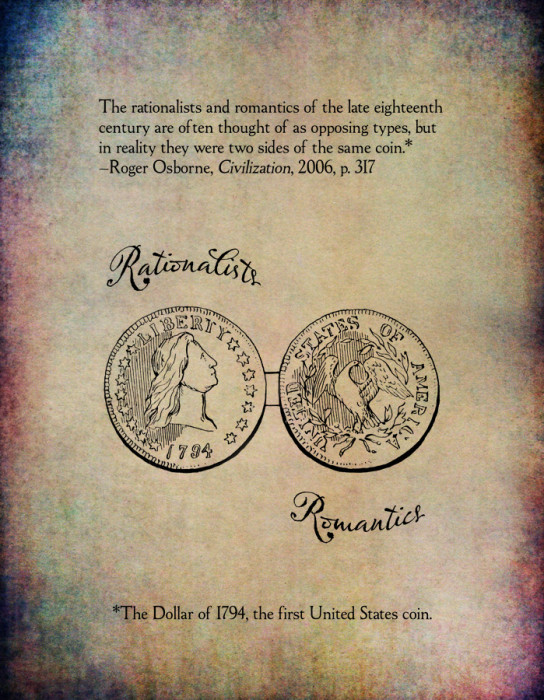
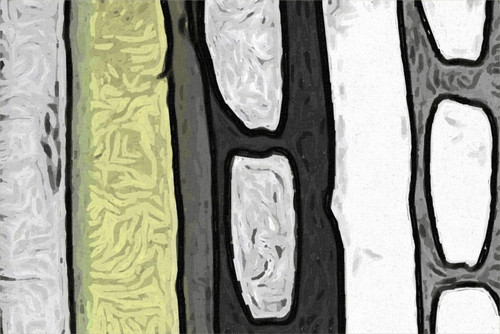

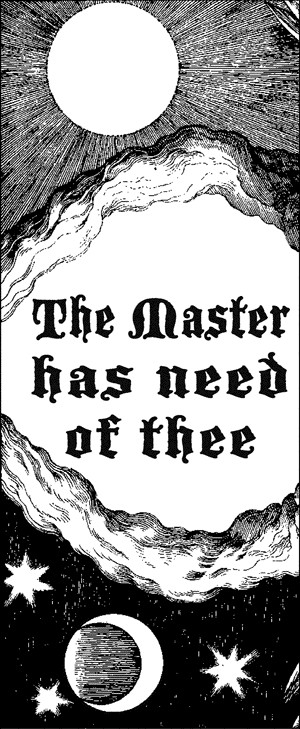
 Is it true, as
Is it true, as 